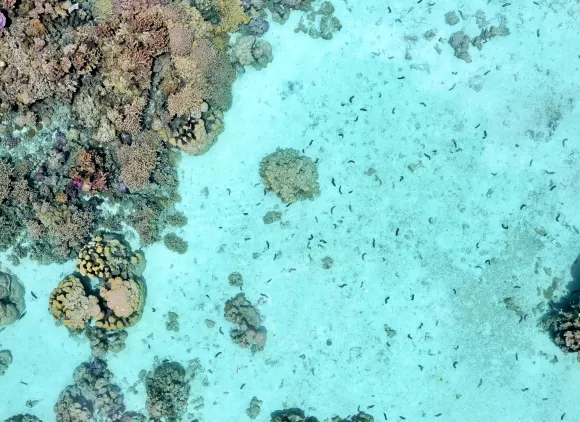The U.S. National Science Foundation Division of Ocean Sciences (OCE) supports research, infrastructure and education on all aspects of the global ocean.
What we support
OCE advances research on ocean cycling from geologic to modern times, helps identify unique marine organisms and connects oceanic processes to those in the atmosphere and on land. The division supports research, infrastructure and education that help us understand how the ocean impacts and is impacted by human activities. OCE also leads and participates in efforts to help ensure long-term ocean health and the sustainable use of ocean resources.
To facilitate this research, the division manages cutting-edge research infrastructure, sometimes in collaboration with federal and international partners, to advance ocean research.
Core programs
OCE is organized into programs to maintain the division’s ongoing investments in disciplinary-based research and promote cross-disciplinary collaboration.
Biological Oceanography
Supports projects focused on biological processes in the ocean.
Physical Oceanography
Supports projects focused on physical processes in the ocean.
Chemical Oceanography
Supports research on all aspects of chemistry in the ocean basins and margins, as well as the Great Lakes.
Marine Geology and Geophysics
Supports research on all aspects of geology and geophysics in the ocean basins and margins, as well as the Great Lakes.
OCE integrative activities and facilities support
OCE invests in ocean research education and infrastructure, including vessels, underwater vehicles and observatories, to provide state-of-the-art equipment and assets for the ocean sciences community.
OCE Education
Supports efforts to integrate ocean research and education through two main programs: the Research Experiences for Undergraduates (REU) Site Program and the Faculty Early Career Development (CAREER) program.
Ocean Technology and Interdisciplinary Coordination
Supports new instruments that enhance the observational, experimental or analytical capabilities of the ocean science research community.
U.S. Academic Research Fleet (ARF)
Currently includes 17 oceanographic vessels and various submersibles that visit the seafloor and sub-seafloor environment, including the Great Lakes and remote polar regions. OCE supports ship operations and provides ship and submersible support. The division also has a specific program dedicated to oceanographic facilities and equipment support. The program supports the procurement, conversion, enhancement or annual operation of ocean, coastal, near-shore and Great Lakes facilities used for research and education.
Regional Class Research Vessels (RCRV)
NSF is currently supporting the construction of three vessels to modernize and support the U.S. Academic Fleet. Each vessel is a floating laboratory for ocean-going scientists, capable of precise station-keeping for water column and sediment sampling, as well as supporting the use of remotely operated and autonomous vehicles.
NSF Ocean Observatories Initiative (OOI)
Ocean observing network that delivers real-time data from more than 900 instruments in the ocean.
NSF Global Ocean Biogeochemistry Array
Global robotic network that includes autonomous robotic floats to monitor the ocean.
U.S. Scientific Ocean Drilling Program
Formerly the International Ocean Discovery Program, this program supports a network of drilling platforms and technologies that allow researchers to explore the ocean basins and Earth's evolution and structure. Scientific drilling platforms provide sediment and rock samples, borehole observations, seafloor monitoring, shore-based facilities and opportunities to conduct experiments beneath the seafloor.
National Deep Submergence Facility (NDSF)
Operates a fleet of underwater vehicles to explore, sample and map the deep ocean.
Data management and sharing
Data generated with OCE funds must be publicly available and stored in the Federal National Data Center repositories.
Who we are
OCE's workforce is composed of federal employees and scientists from research institutions in temporary positions with a wide range of ocean science expertise.
Stay connected
Subscribe to OCE email updates
Be notified of the latest news, funding opportunities and events from OCE.
OCE news and announcements
Keep up with the latest news.
Become a reviewer
Gain insights into the NSF merit review criteria and what makes a good proposal.
Reach out to program directors
Contact NSF program directors to determine if your research idea is a good fit.

